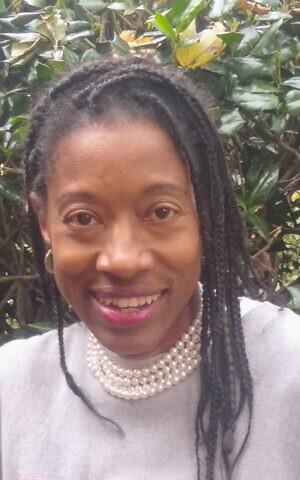What Does Juneteenth Mean to Me?
Two of AJC Atlanta’s Black/Jewish Coalition co-chairs reflect on the holiday.
Also known as Freedom Day, Juneteenth is a prominent holiday that celebrates the end of slavery. Two years after the Emancipation Proclamation, on June 19, 1865, the last group of enslaved people learned of their freedom when the Army declared 250,000 Texas slaves free. In 1980, nearly a century later, Texas recognized Juneteenth as an official holiday celebrated annually on June 19.
I recently met with Victoria Raggs and Mark Dawson, two of the three co-chairs of AJC Atlanta’s Black/Jewish Coalition, to learn more about Juneteenth and its significance. Raggs is a DEI (diversity, equity, inclusion) consultant and the executive director of the Atlanta Jews of Color Council, and Dawson is a managing partner at Benton & Muse consulting and a board member of the Urban League of Greater Atlanta.

When asked what the holiday represents to her, Raggs expressed that “Juneteenth is not only a holiday for American descendants of slaves, but Americans as a whole.” She also spoke about the significance of Juneteenth today considering current racial and social justice issues in the United States. Raggs noted that “it is especially significant to me since the state recently passed the resolution about critical race theory and banning talk about race and racial history in schools.”
To Dawson, Juneteenth is about the “jubilation of being free.” It symbolizes the agency of white and black people, fighting together for freedom from slavery. Unfortunately, however, the holiday feels bittersweet to him. As much as he and many others in the community wish to celebrate the achievements and how far the Black community has come, he hopes that while celebrating Juneteenth, we will never “bury the truth and the history of the holiday.”

In talking about her inspiration to become involved with Black/Jewish activism, Raggs commented on the value of living in Atlanta, the cradle of the civil rights movement, and walking in the footsteps of John Lewis and other trailblazers of the movement. Dawson added a similar note about his inspiration. He especially looks up to Fannie Lou Hamer, “who worked tirelessly for the freedom of Black people” by creating voting drives and founding the Mississippi Freedom Democratic Party.
In Dawson’s words, the best way to celebrate Juneteenth is to “dig into the history and learn about the soldiers who fought for freedom.” Dawson believes that “if we deal with history properly, we can fight racism today.” Raggs urges us “to educate ourselves on the history and inequality, learn about social justice, read, watch movies, and become more aware.”

Raggs closed the interview with this message: Until everyone is free, no one is free. And all of us – whether we are Black, Jewish, or simply allies in the community – must work together towards freedom.
Amit Rau is a rising senior at The Weber School and an intern for American Jewish Committee Atlanta.
- Amit Rau
- Atlanta Jews of Color Council Inc.
- The Weber School
- Urban League of Greater Atlanta
- American Jewish Committee
- Mark Dawson
- Victoria Raggs
- Freedom Day
- Juneteenth
- Emancipation Proclamation
- Benton & Muse consulting
- John Lewis
- Black/Jewish activism
- Fannie Lou Hamer
- Mississippi Freedom Democratic Party
- Community
- Holidays




comments